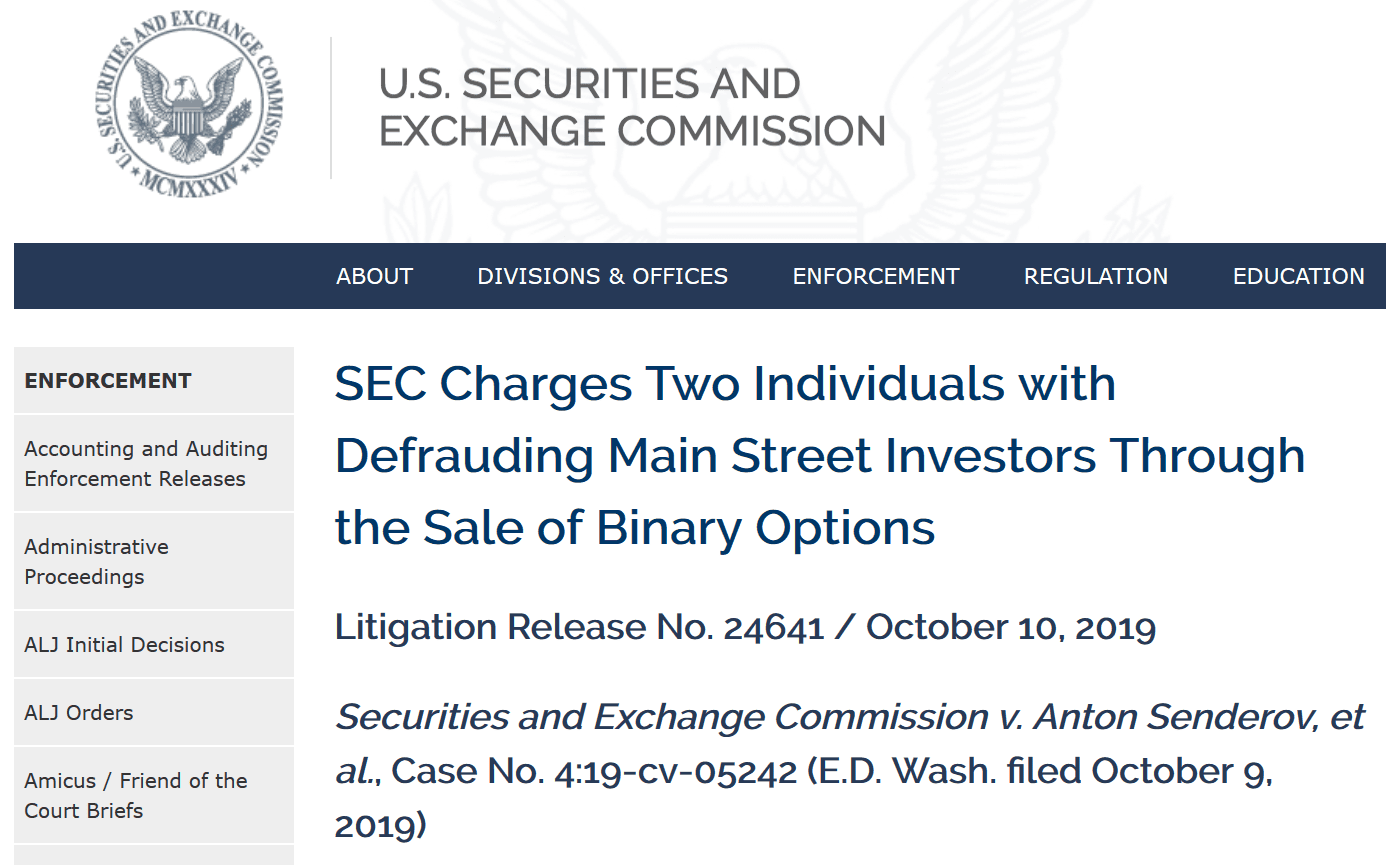On October 9, 2019, the U.S. Securities and Exchange Commission (SEC) charged the two Israeli binary options perpetrators Anton Senderov and Lior Babazara a/k/a Lior Bar with defrauding more than 2,800 U.S. retail investors and causing them to lose over $5 million through online sales of binary options. According to the SEC complaint, the two Israelis operated a fraudulent scheme in which investors deposited millions of dollars into online trading accounts.
The Case Anatomy
Anton Senderov , age 34,and Lior Babazara, age 37, were the beneficial owners and hence the ultimate perpetrators of the binary options schemes LBinary or Live Binary at www.Lbinary.com (“LBinary”) and Ivory Option at www.ivoryoption.com (“Ivory Option”).
They were the beneficial owners of the entity LianTech Finance Marketing Ltd a/k/a LianTech Ltd (“LianTech”) which operated a boiler room in Israel and the LBinary and/or Ivory Option websites. Boiler room agents allegedly solicited investors in the United States to open and fund binary options trading accounts. While they operated from Israel they also targeted investors in the United States and failed to register with the SEC as a broker or dealer.
Through their LBinary and Ivory Option websites, LianTech boiler room agents offered and sold to investors binary options with payouts that were contingent on the value of common stocks, including Google, Nike, Coca Cola, Citi Group, Apple, IBM, Microsoft, and numerous other domestic and international companies. The referenced securities also included numerous domestic and international securities indices, including the Nasdaq Composite and Dow Jones Industrial Average.
Lbinary was one of the binary options schemes that
Conflict of Interest
According to the SEC complaint, the schemes themselves were the counterparty on every single binary option trade that investors made which actually forced a fraudulent business model:
- Because they sat on the opposite side of the investors on every trade, the schemes retained the amounts investors placed on losing trades as revenue and profits.
- LianTech was in direct conflict with the interests of their investors. While the investors sought to profitably trade binary options, LianTech depended on investors losing trades for revenue so that they could fund their operations and earn a profit.
- Consistent with this conflict of interest, the LianTech business model and compensation structure incentivized boiler room agents to deceive investors into depositing significant sums of money into trading accounts, and, through a variety of deceptive acts, to cause those investors to lose their deposits.
The websites described themselves as binary options trading brokers and characterized the purchase of binary options through their trading platforms as trading and investing. The schemes ran from at least January 2014 through August 2017 the SEC purports.
Binary Options
Binary options like those sold though the LBinary and Ivory Option online trading platforms are “binary” because they carry only two possible outcomes. Upon expiration, its holder will receive a
For example, if the current market price of a reference stock, “ABC, Inc.,” is $100 per share, an investor could use the LBinary or Ivory Option trading platform to trade a binary option on whether the price of that stock would be above or below $100 at a certain time in the future (e.g. ABC, Inc., stock will be above $100 at 1 p.m.). If, at the expiration of the binary option, the investor’s trade proved correct – i.e., the price of ABC, Inc., stock was above $100 at 1 p.m. – the investor might receive 175% of his original investment. If the stock price at expiration of the binary option was less than $100, the investor would forfeit all or nearly all of his original investment.
